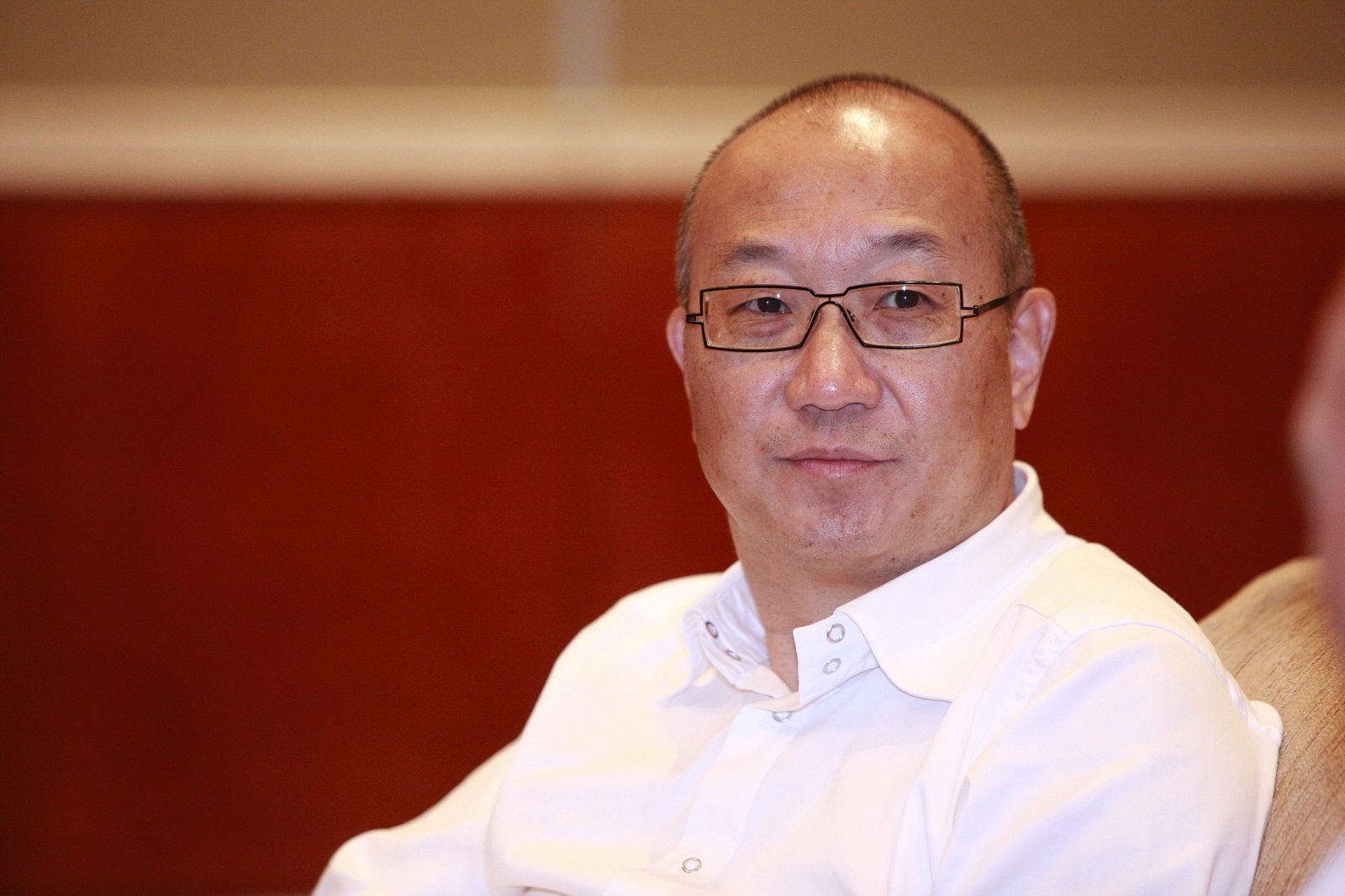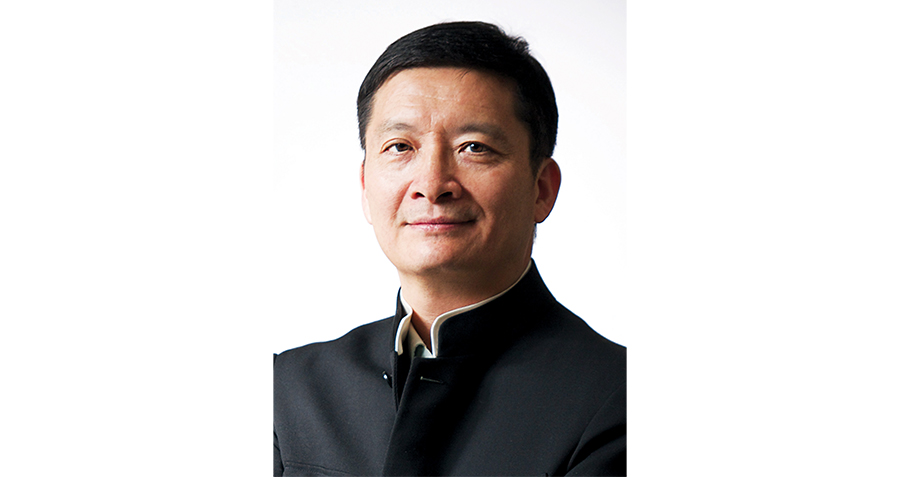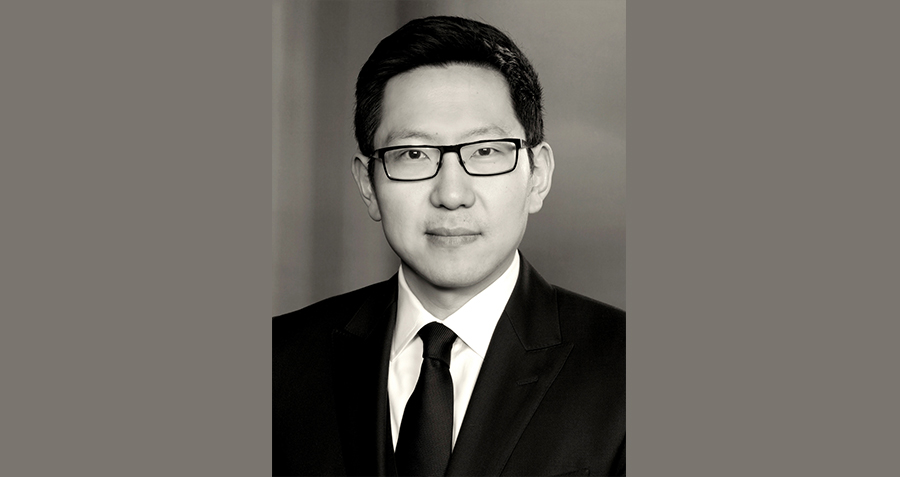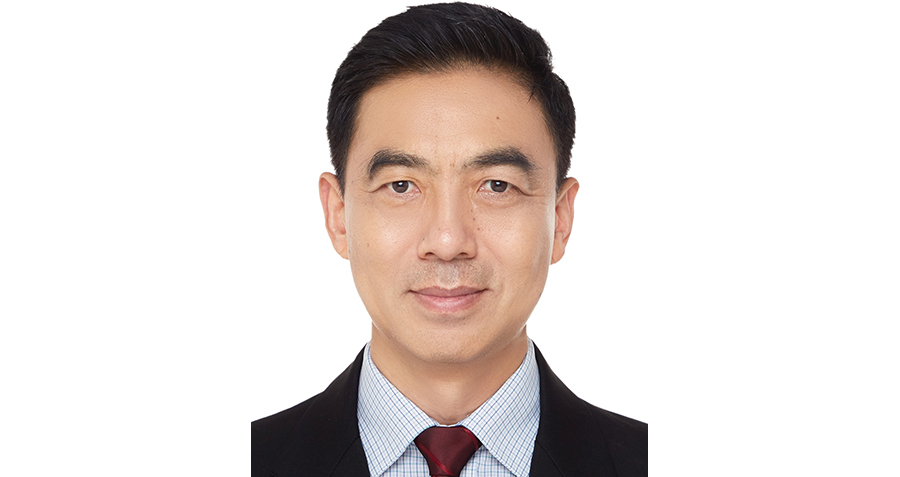Vantone chairman Feng Lun on pioneering a new business model for China’s real estate industry
With China’s real estate market in cool-off mode after over a year of policy-driven credit restrictions, it’s perhaps not surprising that one of the country’s most high-profile developers has been looking at new territories and new business models. Vantone, a leading real estate developer in China, is changing its business model from property development to management with a long-term plan to concentrate on real estate fund management, says the company’s chairman and founder Feng Lun.
Vantone wants to move away from bricks and mortar to managing cash and properties for third-party investors. The company will move “upstream” to property management and financing, explains Feng, leaving it less reliant on building and selling properties, which he terms as a “downstream” activity. “We want to move away from labor-oriented to skill-oriented services.” Feng points to Tishman Speyer, a US firm, which as he explains, builds approximately $150 million worth of developments in one year, but manages $12 billion in real estate funds.
A closer look at company documents shows that Vantone is already attempting to emulate Tishman Speyer. Vantone’s investment management wings include Beijing Vantone Zhengqi Investment Management Co and Chengdu Wanxin Xinchuang Investment Management Co (in which Vantone has a 60% stake) are both listed as subsidiaries in Vantone’s 2011 annual report, with registered capital of RMB 100 million and RMB 20 million respectively. The report also lists Vantone Investment as a company subsidiary. Singapore-based Vantone Investment Pte meanwhile is 100% owned by the company, with its scope listed as “investment management”.
Given that Vantone hasn’t released separate results for its investment vehicles, it is hard to judge their profitability. However there is some proof that Feng Lun is doing something right: profits at the company’s Shanghai-listed arm, Beijing Vantone Real Estate Co, rose by 187% to RMB 20.6 million in the first half of 2012, according to company filings. By contrast another leading real estate developer, SOHO China, saw net profits dip 65% to RMB 613 million, a drop the company said was down to fewer project completions in the period.
Seated in a deep armchair at the glitzy Grand Hyatt hotel in Beijing, Feng Lun explains his excitement for what he calls the “American model”. Feng believes China’s real estate sector has much to learn from the US in terms of financing models. Due to the limited financing channels, he thinks Chinese developers should follow a US model of bundling properties into financial instruments like real estate investment trusts (REITs), a real estate investment structure similar to what mutual funds provide for investment in stocks.
Feng admits that Vantone clients, shareholders and employees have been skeptical of the suitability of US models like REITs for China. “The biggest obstacle to moving to this kind of model in China is the immaturity of the financial markets here.” While mainland Chinese properties have been packaged into REITs traded on the Hong Kong and Singapore stock exchanges, there has been no such trading on the mainland exchanges. Property developers and investors have been eagerly awaiting the timeline and regulatory framework, promised by mainland regulators, to allow REITs to list on mainland exchanges. Notably in 2011 the first Renminbi-denominated REIT was launched on the Hong Kong exchange, allowing investors to invest mainland currency into REIT-packaged mainland properties.
Feng clearly sees long-term hope for the model in China. “Seventy percent of the US real estate development is financed by investors and 30% through other channels. America was able to build this kind of model because it has an advanced capital market. But if you look at China, bank loans account for about 90% of real estate financing.”
“We have to wait for the maturity of our direct financing conditions if we want to follow the model. This is a challenge… but when more and more trust, pension and insurance funds flood into the real estate market, our American model can be launched.”
New York Home for Chinese Business
In the meantime Feng is studying the American system up close, as an investor. In 2009 Vantone signed a 20-year lease on five-and-a-half floors of the first tower of the rebuilt World Trade Center (popularly known as One World Trade Center). After overcoming local sensitivities Feng opened a 190,000 square foot China Center with offices for Chinese corporations and exhibits on Chinese culture. He even incorporated a vertical Chinese garden designed by Japanese architect Kengo Kuma into the Center. Tenants include AVIC, China’s state-owned aviation equipment maker, while others in the 104-floor glass tower include publishing giant Condé Nast.
Feng Lun became familiar with the World Trade Center project while completing a real estate lectures program in Columbia University in 2003. He was also among the Chinese developers who met with then New York governor George Pataki through an investor relations delegation to Beijing in 2005.
“I’ve flown to New York over 50 times since 2003,” says Feng. “We want the 500 Chinese companies listed on the New York Stock Exchange and Nasdaq to move in… Our strategy is always to prioritize mainland Chinese clients and tailor our overseas products to their demands. If they want office space in Vancouver, we’ll expand there and if they want to be in Hokkaido, we’ll build there too.”
Vantone doesn’t deliberately seek American tenants for its US property. “We treat them as supplement. Everything we do is expected to be liked by both Chinese and Americans. Chinese clients are the basis, while American ones are a bonus.”
Feng explains how expansion into the competitive New York real estate market is central to his ambition to make Vantone a global player. “People think we haven’t made much progress in recent years because they didn’t see us competing for land.” In reality, Vantone was competing for a slice of the Manhattan skyline.
Feng’s partner in the US is the Durst Organization Inc., the developer of the World Trade Center project which currently owns or manages 8.5 million square feet of prime Manhattan office space. Vantone invested $11 million in Durst’s 855 Sixth Avenue, a mixed-use hotel and residential property. Durst has been an invaluable source of advice to Vantone on managing and operating green commercial high-rise, says Feng. “It’s been like going to college.” Vantone appears to have also advised Durst on investing in Asia. Durst invested a similar amount into Vantone’s Taipei 2011, a luxury serviced apartment complex in Taipei, Taiwan.
Feng says he will “certainly” make more investments in the US. “We will combine our American experience and resources with our strategy. This is a strategic consideration, through which we can improve and get to know new ways to run the real estate business.” Meanwhile, he is on the lookout for more opportunities. In August, Bloomberg reported that Vantone was in discussions with authorities in San Francisco to re-develop the city’s Pier 19, converting the 206,000 square foot warehouse near Fisherman’s Wharf for use as offices, meeting rooms, galleries or a hospitality center for Chinese business people.
Entering a mature market like the US has been a learning experience for Vantone. “In an unfamiliar market like New York you must have good partners, specific projects and good financial resources to control the risk,” says Feng.
Like Vantone, many Chinese developers appear increasingly keen on the US. The largest Chinese residential developer by sales, China Vanke, recently announced plans for its first overseas project in the US. Vanke’s President, Yu Liang recently said in a press conference in Hong Kong that “international expansion is going to be an important strategy”.
Feng has words of caution for Chinese developers thinking about the US. “None of the Chinese companies that go to the US to be developers are successful because they lack the experience in the mature market, but some who go there to acquire buildings have done well.”
American Idol
American real estate mogul Sam Zell, a master of the REIT structure, is clearly a role model for Feng. “Zell manages many people’s money. China Investment Corporation, for instance, gives Zell money. He utilizes both his own money and the money he manages. At present, Vantone also manages its own money and other people’s money, and gradually we are moving up the value chain. Ten years from now, if we continue to move up the value chain, we might be able to be like Sam.”
While Feng is clearly in awe of what he terms the American model, he also sees a model worth emulating closer to home. That’s Singapore-based CapitaLand, which Feng describes as having established a “complete real estate value chain in China”. He is referring to CapitaLand’s 10 real estate funds focused on mainland developments. “It took CapitaLand nine years to complete the transition; I think it will take Vantone 10 or 15 more years to make the transition from developer to real estate finance management firm.”
Residential to Commercial
Feng Lun also wants to match CapitaLand’s success in commercial real estate. The Singaporean developer operates 53 commercial projects in mainland China, compared to Vantone’s two. Feng says government restrictions on the residential real estate market means Vantone will increasingly focus on commercial properties.
Chinese developers are hedging their bets with a presence in both the residential and commercial sectors since restrictions on residential real estate were implemented in an effort to bring down prices. The government’s tightening measures, implemented in 2010 to bring home prices down, have included restrictions on home purchases in several cities, higher down payments and property taxes. Other property restrictions include a squeeze on credit to developers.
Potential for growth in the commercial real estate space is huge. “Chinese real estate companies started the transition from residential to commercial long before the policy enforcement,” says Joe Zhou, head of research at Jones Lang LaSalle in Shanghai. He explains that commercial property attracts investors as it’s “more closely related to the fundamental factors of the economy… For example, retail real estate is benefiting from the growth of incomes and consumer spending in China”.
A shortage of quality properties for sale, however, remains a challenge. Likewise capital and talent remain key challenges to developers tapping the commercial market. “The payback period is about 20 years for commercial real estate. Government is controlling the credit so real estate companies face great difficulties getting loans. China does not have REITs yet, and the scale of private equity funds is too small compared with the investment in development.” The other challenge facing developers is a lack of talent, particularly in the commercial real estate space. “It takes a long time to accumulate experience in office building and mall management for instance,” says Zhou.
While market conditions mature, Feng’s plan for Vantone’s medium-term success goes like this: establish the Vantone brand name with quality commercial real estate projects which will ensure higher yields and longer-term rents thanks to better management. Feng also sees a chance to increase the value (and thus rents) of a building by securing environmentally-friendly badges like Leadership in Energy and Environment Design (LEED), an international green building certification system which Vantone secured for its Vantone Center, a mixed use building in downtown Beijing. “Once our rental yields exceed 6% , it will be possible to package these commercial properties in REITs,” explains Feng.
Dimensional Cities
Another one of Feng’s notable innovations is what he terms the “Dimensional City”, which is Vantone’s blueprint for sustainable cities as China continues its rapid urbanization.
Feng says Vantone has invested RMB 50 billion in realizing its first “Dimensional City” in Chengdu, with work set to begin at the end of 2012 on a community that integrates commercial establishments and apartments. Vantone, he says, has also looked carefully at building similar developments in six second-tier cities including Xi’an and Wenzhou.
“These settlements will deal with issues concerning the environment, industrial development and residential environment,” says Feng, who adds that progress in individual cities will depend on local governments’ “acceptance of our innovation”. Feng explains, “In the traditional mindset, police stations are supposed to be in one-story buildings with a courtyard, but we will move them to the sixth floor. Likewise school playgrounds are on the ground, but we might move them to the fourth floor. This kind of innovation needs the cooperation and acceptance of local government.”
In these communities, 65% of the land will be dedicated to agriculture, commercial establishments, schools, hospitals and internet companies, while 35% will consist of green areas.
Ideologue Turned Developer
Known for his colorful language and (often mixed) metaphors, Feng Lun compares his role as a fund manager to a diamond polisher: “You’ve got to be outstanding at making the diamond shine but you’ve also got to keep the diamond safe. You can increase the value of the properties 10 times but just like the man who polishes other people’s diamonds you’ll only keep 5% of the profits that come from your skills as a manager, so you have to keep a level head.”
Born in Xi’an in 1959, Feng Lun has cultivated an image as a “Renaissance man”, authoring bestselling books and driving a jeep across Afghanistan in 2006. Feng, who earned a doctorate of law from the Chinese Academy of Social Sciences before a brief academic career at the Communist Party’s Central School, has also styled himself as a philanthropist. He has been chair of the China-based Society of Entrepreneurs for Ecology and the Singapore-based World Future Fund which professes a goal of finding solutions to problems facing humanity, such as climate change and hunger.
Now a prolific author, Feng Lun still retains the worldly air of an academic. Feng keeps a portrait of Yasser Arafat in his offices (apparently he admires Arafat’s lifelong devotion to the singular goal of Palestinian statehood). His bestselling autobiography, Full Fledged Ideals (title loosely translated from Chinese), is a call to arms for young people to pursue their dreams. The book noticeably does not dwell on his relationship with former business partner and current rival, Pan Shiyi, Chairman of SOHO China, Beijing’s biggest developer by land bank. The former business partners went their separate ways in 1994 in a dispute over the future direction of Vantone.
Feng’s first book Rampant Growth talks of Vantone’s early days in Hainan’s frothy real estate market in the early 1990s. Feng, as chairman and Pan overseeing sales, alongside Wang Gongquan, now the billionaire founder and chairman of venture capital firm CDH Investments. The trio established Vantone Industrial in 1993 with RMB 800 million in paid-in capital. Feng and Pan disagreed when Feng began to expand Vantone into other sectors like telecom and aviation. Keen to focus on real estate, Pan left to set up SOHO China, which is now a leading Chinese developer.
While Feng has a vision of an American model of doing business, it’s unclear how soon he’ll be able to transplant that model to China, given the restrictions on fund structures such as REITs. But Feng says he’ll be kept busy for some time learning the way the US real estate market works. Reaching for yet another metaphor, he explains the process. “A farmer doesn’t become a city slicker just by cleaning himself up and taking a shower. He first has to be educated. So it is with us, we have to learn how the system works.”
The Hong Kong Model Versus the US Model
The Hong Kong Model which Vantone used to employ put the emphasis on the appreciation of assets and land. On the other hand, the American model which Vantone is pursing now seeks profits from management and operation of the properties.
Vantone’s American model includes reducing the business in development,and focusing instead on value-added commercial real estate via world-class property management and operation, acquiring industrial properties and further turning the properties into financial products such as REITs. Vantone is also moving into real estate fund management, it now manages three funds: Vantone Shouzheng,Wanli Fund and American Black Lion Fund.

















